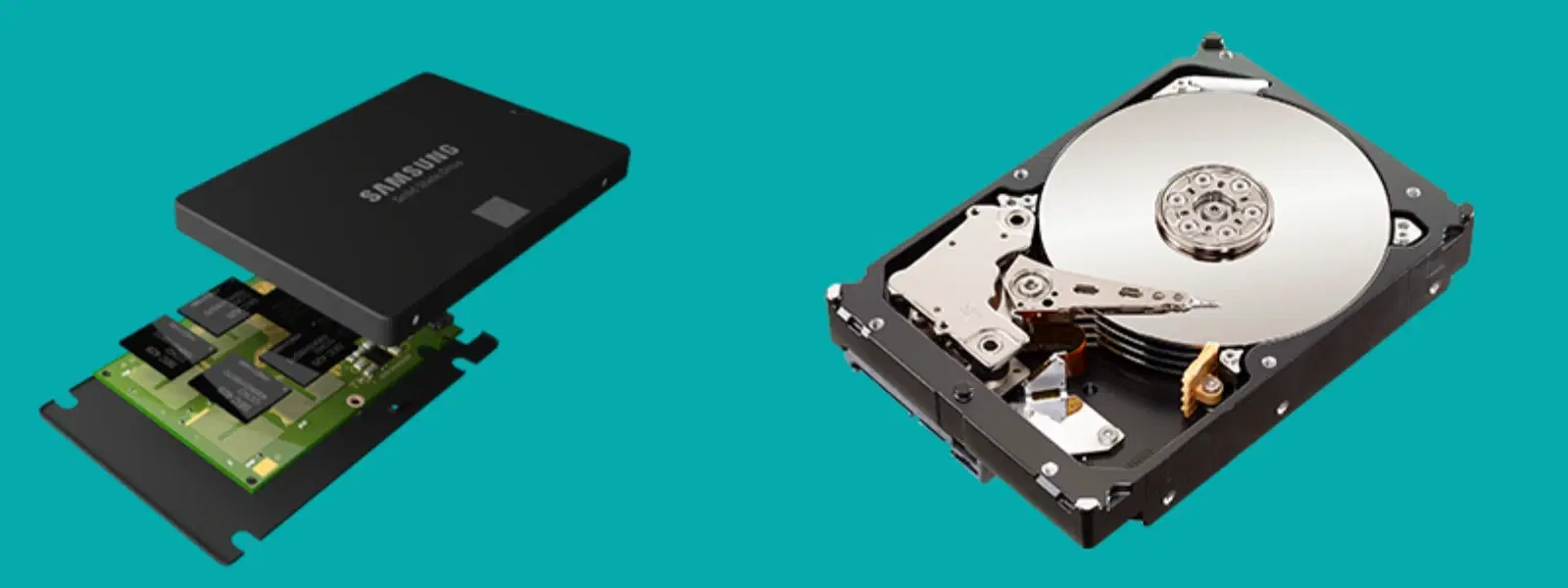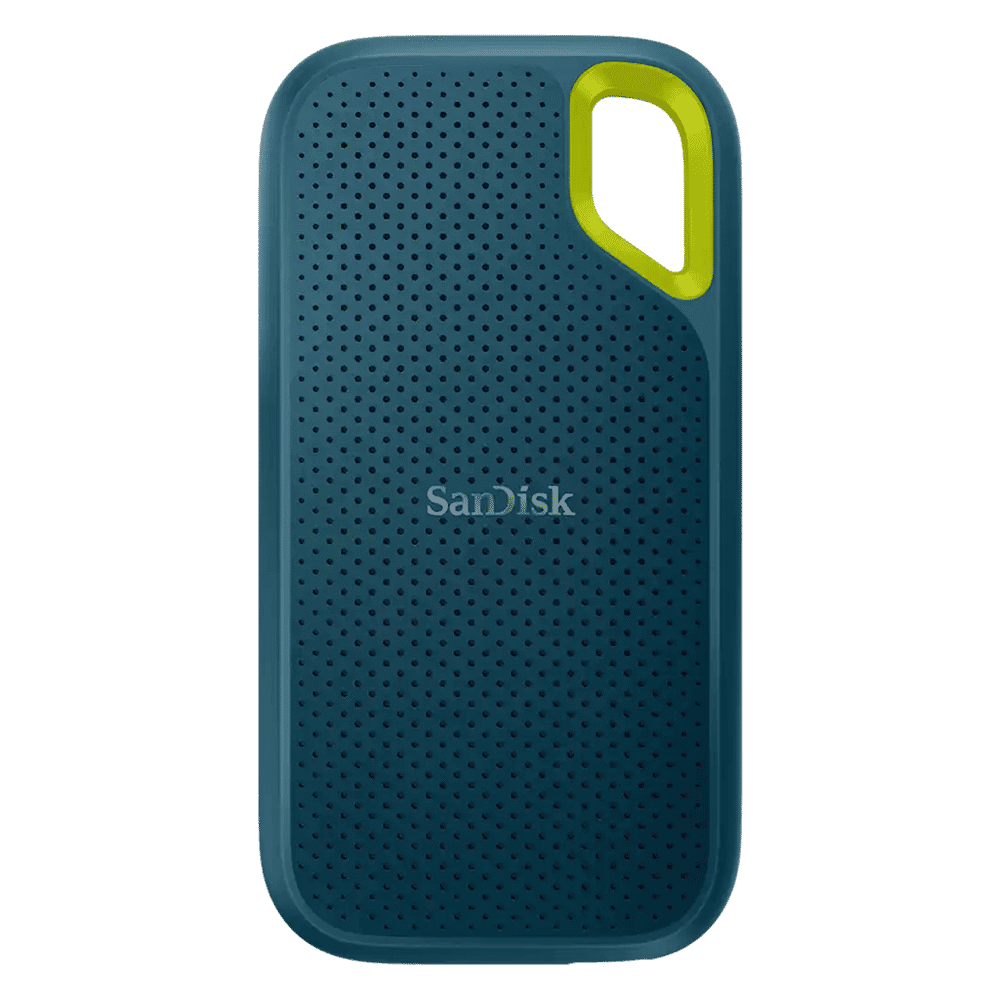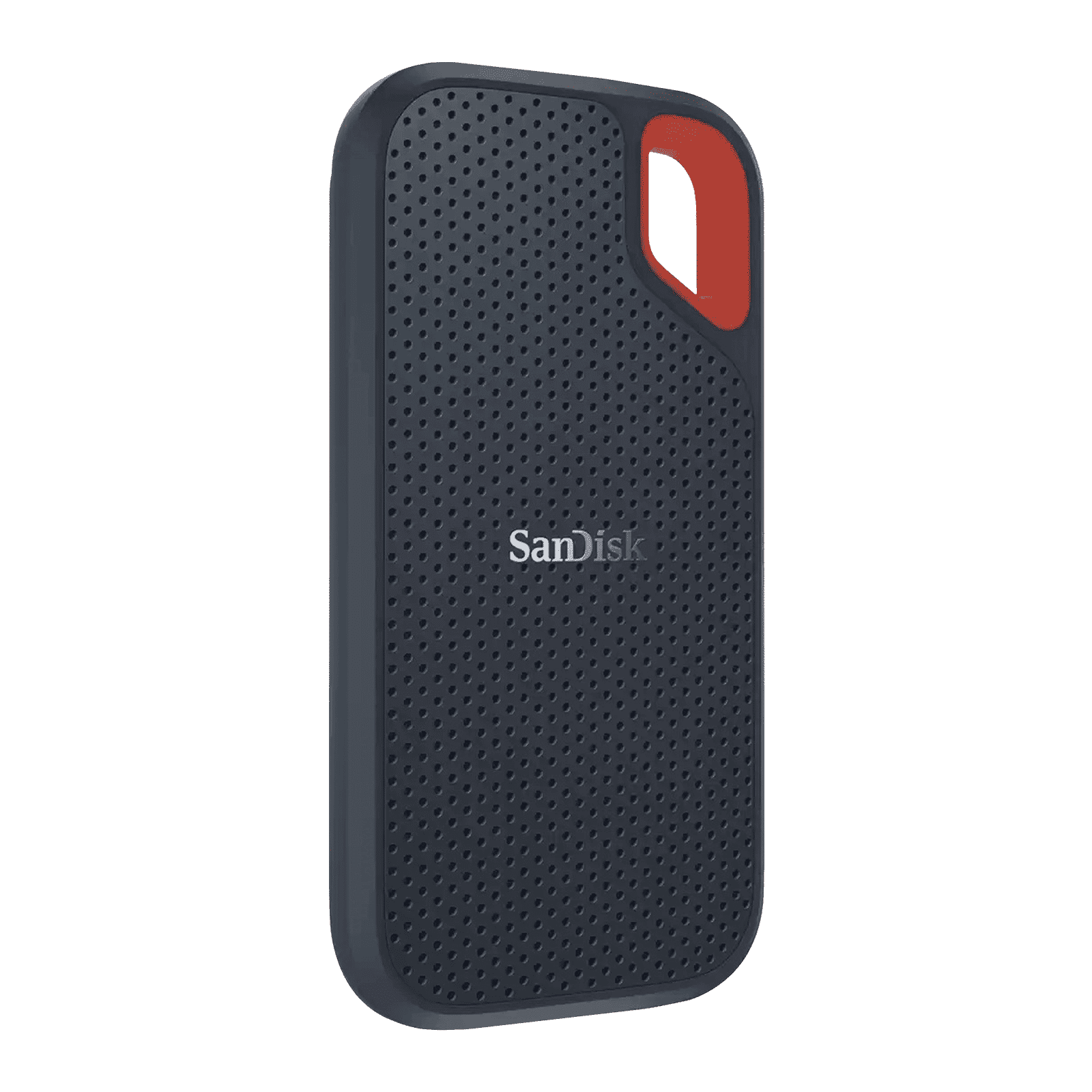
Consumer Electronics
•04 min read

Buy SanDisk Extreme 1 TB USB Type-C (3.2) Portable Solid State Drive (Drop Protection, Monterey) online at best prices from Croma. Check product details, reviews & more. Shop now!
Imagine waiting minutes for your device to boot up or files to load at a snail's pace – the type of frustration that makes you wonder if your computer's storage is holding you back. In this blog, we explore the differences between solid state drives (SSD) and hard disk drives (HDD) to help you choose the one that suits your everyday needs, be it for gaming, work, or general storage.
An SSD, or Solid State Drive, utilises flash memory to store data, while an HDD, or Hard Disk Drive, depends on spinning magnetic disks. The technology behind each has a direct impact on your system’s performance. With SSDs, you benefit from speedy boot times and quick file transfers, whereas HDDs typically provide larger storage capacities at a lower cost.
SSDs utilise non-volatile memory, meaning they remember your data even when power is off. In contrast, HDDs use a mechanical method with rotating disks, which can affect overall performance due to mechanical wear over time. Your choice between these two can significantly influence the responsiveness and durability of your device.
One of the most evident differences between SSDs and HDDs is their speed. SSDs generally outperform HDDs in read and write speeds, meaning that your computer can boot up faster, and applications load in a jiffy. This enhanced speed is particularly noticeable in scenarios like gaming or video editing, where every second counts.
When it comes to everyday use, SSDs offer a noticeable improvement in system responsiveness and multitasking. Whether you are a student or a young professional juggling multiple applications, the faster performance greatly enhances your experience.
Another critical aspect is durability. SSDs have no moving parts; this means they are more resistant to shocks and vibrations, making them ideal for portable devices. Meanwhile, HDDs, while known for their higher storage capacities at a lower cost, are prone to mechanical wear and tear over extended use.
Did You Know? SSDs Can Drastically Improve Your Laptop's Battery Life!
SSDs consume significantly less power than HDDs, making them an excellent choice for portable devices. This can extend your laptop’s battery life by up to 30%, depending on usage.

Buy SanDisk Extreme 500GB USB Type-C (3.2) Portable Solid State Drive (IP65 Water and Dust Resistance, Black) online at best prices from Croma. Check product details, reviews & more. Shop now!
Choosing between SSD and HDD depends largely on what you value more in your storage solution. SSDs provide distinct benefits such as faster speed, lower power consumption, quieter operation, and enhanced durability. Conversely, HDDs offer the advantage of larger storage capacities that suit budget-conscious users or those who need vast amounts of space.
While SSDs are impressive in terms of performance, they do come with a higher cost per gigabyte and a limited number of write cycles. On the other hand, HDDs may lag when it comes to speed and are subject to issues like mechanical fragility and higher power consumption.
In practical scenarios, if you’re an avid gamer or a video editor, opting for an SSD might be the best decision as it cuts down load times significantly. For instance, while SSDs help improve in-game performance by reducing delays, HDDs can still be useful for storing large game libraries and media files without breaking the bank.
For everyday devices such as laptops and workstations, SSDs offer the portability and speed that modern professionals and students need. However, if you're looking to back up files or prefer a budget-friendly option for large storage, an HDD might be a sensible choice.
Energy efficiency is another factor that often tips the scales in favour of SSDs, particularly for portable devices where battery life is crucial. The lower power consumption of SSDs can lead to longer usage times, making them ideal for those on the go.
One of the primary factors in deciding between an SSD and an HDD is the cost. SSDs tend to have a higher cost per gigabyte, although recent trends suggest that their pricing is gradually becoming more affordable. Meanwhile, HDDs offer a cost-effective solution for those who require larger storage space.
In terms of lifespan, SSDs are measured by the number of write cycles they can withstand, which is generally more than sufficient for everyday uses. HDDs, however, can suffer from mechanical wear over time due to their moving parts. The overall lifespan of both types will depend on the nature of your use, but for high-intensity writing tasks, SSDs are typically the more reliable option.

Buy SEAGATE One Touch 1TB USB Type-C (3.0) Portable Solid State Drive (Rescue Data Recovery Services, Black) online at best prices from Croma. Check product details, reviews & more. Shop now!
When considering a new storage option, why not pair your purchase with benefits that add value to your tech investments? At Tata Neu, you not only gain access to a wide range of the latest gadgets and appliances but also earn NeuCoins with every transaction. These rewards can be used to shop across your favourite brands, giving you an extra incentive to invest in quality technology that suits your lifestyle.
This synergy of advanced technology and smart rewards transforms your shopping experience into one that is both practical and rewarding. Whether you are upgrading your laptop or thinking of a complete tech overhaul, the choice between SSD and HDD should align with your everyday needs, while enjoying the extra benefits that come as a part of a trusted platform.
It depends on your needs. SSDs are faster, more durable, and energy-efficient, whilst HDDs offer larger storage capacities at a lower cost.
SSDs are generally more durable due to the lack of moving parts, but they have a limited number of write cycles. HDDs may last longer in less write-intensive environments.
No, a 500GB HDD provides more storage capacity, whereas a 256GB SSD delivers quicker performance. The choice boils down to whether speed or storage space is more important to you.
Choose an external SSD for enhanced speed and portability, and an external HDD for cost-effective, high-capacity storage.
In laptops, SSDs facilitate faster boot times, improved performance, and better battery life, while HDDs remain a budget-friendly option with a larger storage capacity.
In summary, both SSDs and HDDs come with their own advantages and limitations. By weighing factors such as speed, durability, power consumption, cost, and storage capacity, you can make a well-informed decision that fits your lifestyle. Remember, the right storage option not only enhances your device's performance but also complements your broader digital experience, especially when paired with intelligent rewards that recognise your spending.